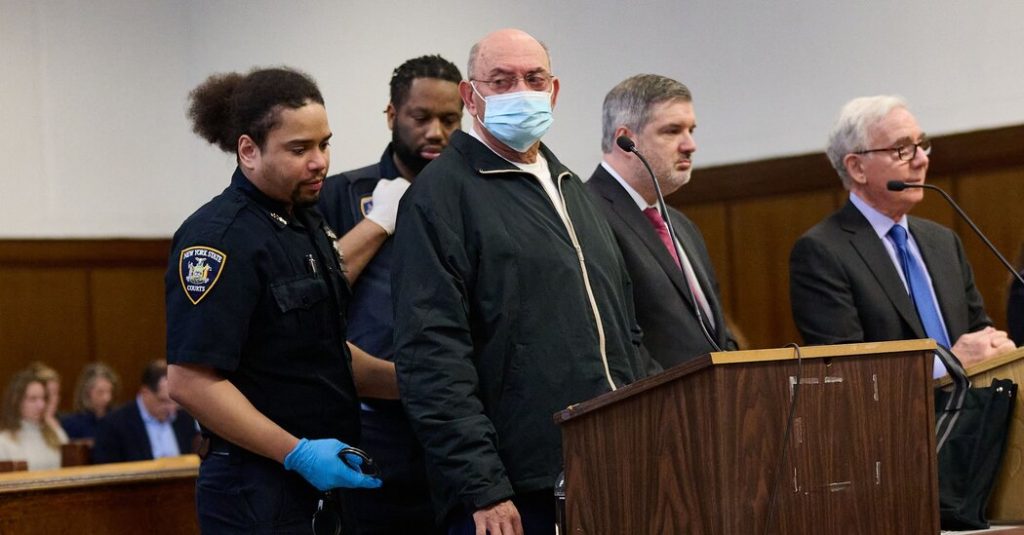Days before his inauguration in 2017, Donald Trump settled a debt with his fixer, Michael Cohen, striking a $420,000 deal in New York. This encounter is central to Mr. Trump’s current criminal trial in Manhattan, as it involves hush money paid to a porn star with the goal of concealing the reimbursement as legal fees. The trial hinges on whether Mr. Trump had direct knowledge of this scheme, with Cohen claiming he did, while Trump denies it. Allen Weisselberg, Mr. Trump’s moneyman, was present during the meeting, but has remained silent, refusing to cooperate with prosecutors.
Weisselberg, who served Mr. Trump for nearly half a century, has been a key figure in the case as he could have provided crucial information in exchange for his freedom. However, he chose loyalty and financial security, signing a multi-million dollar severance deal that required him not to voluntarily cooperate with any investigations. The district attorney’s office tried to turn Weisselberg against Trump but eventually indicted him due to his refusal to cooperate or potentially lying under oath. Prosecutors did not call him as a witness in Trump’s trial, as they doubted he would tell the full truth about the hush-money deal.
Throughout his career, Weisselberg was closely tied to the Trump family, rising through the ranks of the Trump Organization to become the CFO and trusted economic advisor to Trump. Despite pressure from law enforcement, he remained loyal to his boss, ultimately leading to legal troubles and a five-month jail sentence. Weisselberg’s credibility was called into question during the trial, and he was not included on either side’s witness list. Prosecutors introduced evidence that corroborated Cohen’s account of the hush-money scheme, but without Weisselberg’s testimony, the full truth remained in dispute.
At the trial, Cohen testified that Trump had approved the hush money payment and signed off on falsifying records to conceal it as a legal expense. Trump’s defense argued that he was actually paying Cohen for legal services, not directly reimbursing him for the hush money, pointing out discrepancies in the payment amount. However, prosecutors maintained that Trump repaid Cohen for various debts, taking tax concerns into account. Weisselberg’s absence was notable, as he was seen as the missing piece in the prosecution’s case, but his refusal to testify or cooperate hindered efforts to fully clarify Trump’s involvement in the scheme.
Weisselberg’s loyalty to Trump, while earning him financial security, also led to legal troubles and ultimately a jail sentence for perjury. Despite pressure from prosecutors and Trump’s legal team, he remained steadfast in his refusal to cooperate, ultimately damaging his credibility as a witness. The trial highlighted the intricate relationship between Trump, Weisselberg, and Cohen, shedding light on the inner workings of the Trump Organization and the lengths to which individuals would go to protect their interests. The outcome of the trial could have lasting implications for Trump, as his former associates face repercussions for their involvement in the hush-money scheme.


